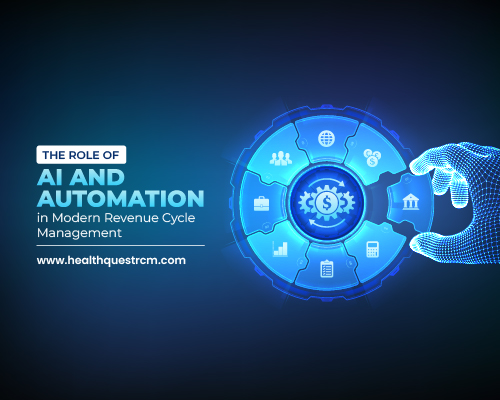In recent years, AI in Revenue Cycle Management (RCM) has revolutionized the healthcare industry by streamlining administrative tasks and improving accuracy. Modern healthcare providers increasingly rely on AI in medical claims processing and denial management automation to reduce errors, speed up reimbursements, and boost overall efficiency.
If you’re curious about how technology reshapes billing and revenue, this article dives into the essential roles of AI and automation in today’s RCM landscape.
How AI in Revenue Cycle Management Transforms Healthcare
AI technologies analyze vast amounts of healthcare data faster and more accurately than humans. By implementing AI in Revenue Cycle Management, providers can automate repetitive tasks such as patient eligibility checks, claims submission, and payment posting. This automation reduces manual errors and accelerates the billing cycle, which ultimately increases cash flow.
Enhancing Accuracy with AI in Medical Claims Processing
One of the biggest challenges in RCM is handling complex and ever-changing insurance claims. AI in medical claims processing can validate claims in real-time, detect coding errors, and flag discrepancies before submission. This reduces the chances of claim rejections or denials, saving providers time and money.
Automation also supports faster adjudication by insurance companies, as clean claims are easier to process, which improves provider satisfaction.
Denial Management Automation: Minimizing Revenue Loss
Claim denials cost healthcare organizations billions annually. Here, denial management automation plays a crucial role. AI-powered systems quickly identify the root causes of denials—whether due to coding mistakes, missing information, or insurance issues—and automatically generate appeals.
By using denial management automation, healthcare providers can reduce the time spent on manual follow-ups and improve their chances of claim recovery, boosting revenue.
Benefits of AI and Automation in Modern RCM
- Improved Efficiency: Automating routine tasks frees up staff to focus on higher-value activities.
- Reduced Errors: AI’s precision minimizes costly mistakes in claims and billing.
- Faster Payments: Real-time processing and validation speed up reimbursements.
- Data-Driven Insights: AI analytics help identify trends, optimize workflows, and enhance financial forecasting.
The Future of AI in Revenue Cycle Management
As technology advances, AI in Revenue Cycle Management will become even more integrated into healthcare operations. Expect smarter algorithms that can predict patient payment behaviors, personalize billing communication, and further automate complex workflows.
For healthcare organizations looking to stay competitive, embracing AI and denial management automation isn’t just an option, it’s a necessity.
Ready to revolutionize your Revenue Cycle Management with AI?
Partner with HealthQuest RCM today to streamline your medical claims processing, reduce denials, and maximize your revenue with cutting-edge AI and automation solutions.
Contact us now for a free consultation!
FAQs: Role of AI and Automation in Modern RCM
AI in RCM uses artificial intelligence to automate and optimize billing, coding, claims processing, and payment activities within healthcare organizations.
AI validates claims for accuracy, detects errors, and ensures compliance with insurance policies to reduce rejections and speed up payments.
Denial management automation uses AI to identify why claims are denied and automatically generate appeals to recover revenue faster.
Yes, AI’s ability to analyze large data sets precisely minimizes human errors in coding, billing, and claims submission.
AI helps healthcare providers increase efficiency, reduce costs, and adapt to complex billing regulations—essential for sustainable revenue growth.

